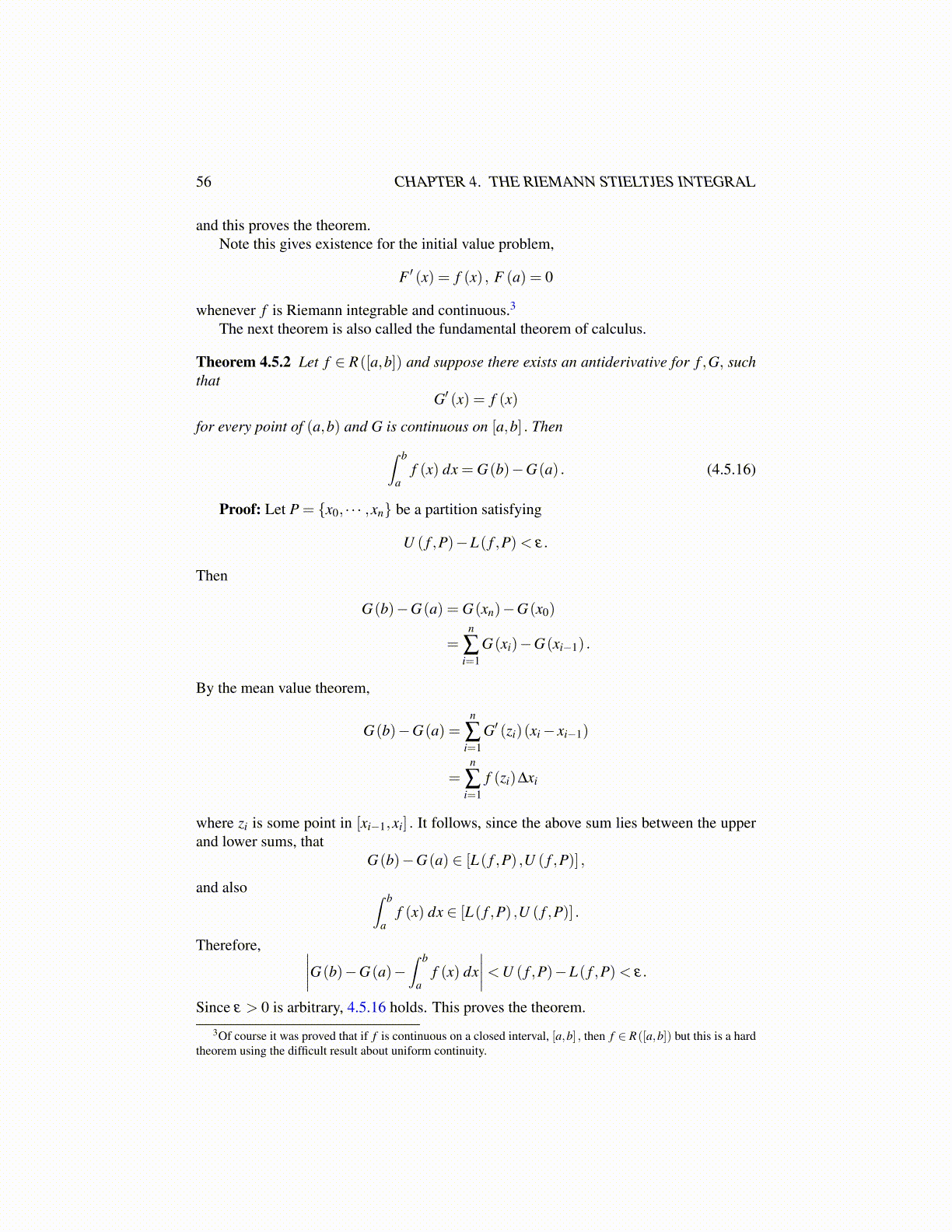
56 CHAPTER 4. THE RIEMANN STIELTJES INTEGRAL
and this proves the theorem.Note this gives existence for the initial value problem,
F ′ (x) = f (x) , F (a) = 0
whenever f is Riemann integrable and continuous.3
The next theorem is also called the fundamental theorem of calculus.
Theorem 4.5.2 Let f ∈ R([a,b]) and suppose there exists an antiderivative for f ,G, suchthat
G′ (x) = f (x)
for every point of (a,b) and G is continuous on [a,b] . Then∫ b
af (x) dx = G(b)−G(a) . (4.5.16)
Proof: Let P = {x0, · · · ,xn} be a partition satisfying
U ( f ,P)−L( f ,P)< ε.
Then
G(b)−G(a) = G(xn)−G(x0)
=n
∑i=1
G(xi)−G(xi−1) .
By the mean value theorem,
G(b)−G(a) =n
∑i=1
G′ (zi)(xi− xi−1)
=n
∑i=1
f (zi)∆xi
where zi is some point in [xi−1,xi] . It follows, since the above sum lies between the upperand lower sums, that
G(b)−G(a) ∈ [L( f ,P) ,U ( f ,P)] ,
and also ∫ b
af (x) dx ∈ [L( f ,P) ,U ( f ,P)] .
Therefore, ∣∣∣∣G(b)−G(a)−∫ b
af (x) dx
∣∣∣∣<U ( f ,P)−L( f ,P)< ε.
Since ε > 0 is arbitrary, 4.5.16 holds. This proves the theorem.3Of course it was proved that if f is continuous on a closed interval, [a,b] , then f ∈ R([a,b]) but this is a hard
theorem using the difficult result about uniform continuity.